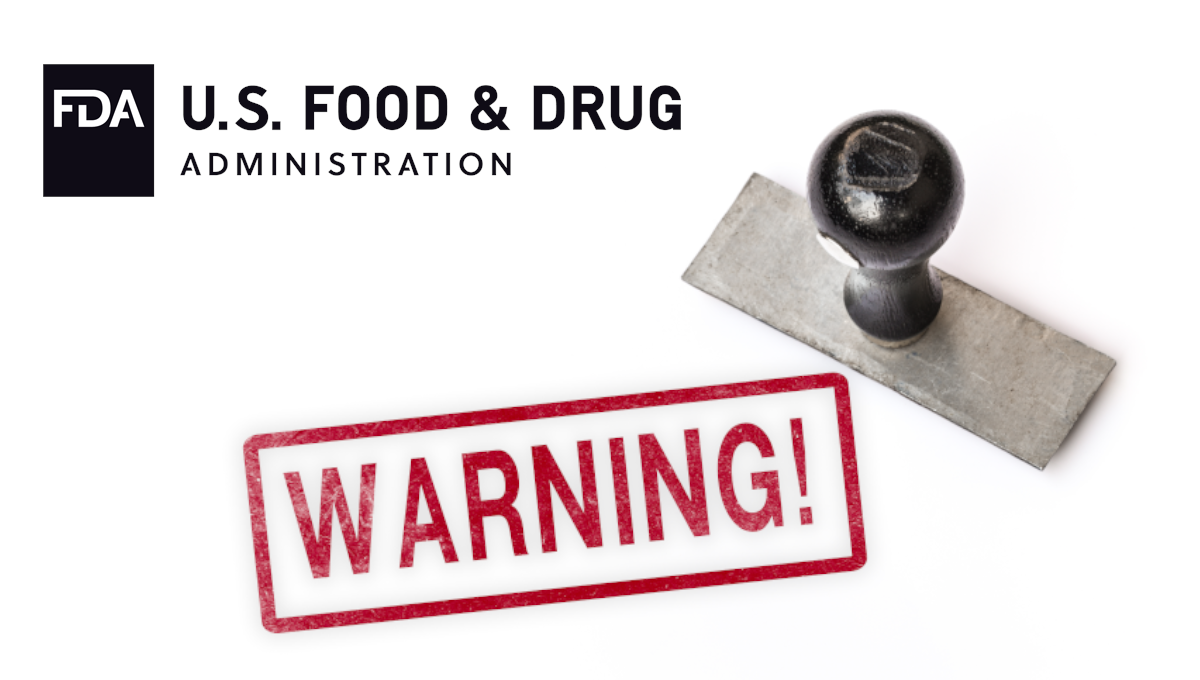
As part of its enforcement activities, the Food and Drug Administration sends warning letters to entities under its jurisdiction. Some letters are not posted for public view until weeks or months after they are sent. Business owners have 15 days to respond to FDA warning letters. Warning letters often are not issued until a company has been given months to years to correct problems.
The U.S. Food and Drug Administration (FDA) has issued warning letters to two seafood processing companies — Bacalao Giraldo S.L.U. in Spain and Procesadora Marina De La Costa Oriental Del Lago C.A. in Venezuela — for failing to meet crucial food safety standards. Both firms were found to have serious deficiencies in their Hazard Analysis and Critical Control Point (HACCP) plans, risking the safety of their products.
Bacalao Giraldo S.L.U.
Legutiano, Spain
On Sept. 30, the FDA sent Bacalao Giraldo S.L.U. a warning letter following an inspection of its seafood processing facility. The FDA’s investigation revealed that the firm’s HACCP plan for its refrigerated and frozen desalted cod in modified atmosphere packaging (MAP) was inadequate to prevent the growth of Clostridium botulinum, a bacterium that produces life-threatening toxins.
Key violations:
- Failure to control Clostridium botulinum in MAP: The firm’s critical limit of (redacted by FDA) percent oxygen was not sufficient to ensure safety, as spoilage bacteria could deplete oxygen, creating favorable conditions for toxin formation.
- Inadequate refrigeration controls: The company did not have time-temperature indicators (TTIs) or other methods to monitor temperature fluctuations during product distribution.
- Improper labeling and storage instructions: The FDA emphasized that the HACCP plan must include instructions for proper storage and thawing, such as labeling for frozen storage and ensuring safe thawing practices.
- Inadequate response to FDA concerns: Despite providing documents on sorbate usage and shelf-life studies, the FDA found that the measures did not provide equivalent assurance of food safety for C. botulinum growth and toxin formation.
The FDA recommended that Bacalao Giraldo revise its HACCP plan to address these deficiencies, warning that failure to comply could lead to product detention.
The full warning letter can be found here.
Procesadora Marina De La Costa Oriental Del Lago C.A.
Zulia, Venezuela
On Aug. 30, the FDA warned Procesadora Marina De La Costa Oriental Del Lago C.A. about violations at its seafood processing facility. The company’s HACCP plan for its ready-to-eat (RTE) crabmeat products — such as jumbo lump, lump, and cocktail claw crabmeat — was insufficient to control hazards like Clostridium botulinum growth.
Key violations:
- Inadequate cooling processes: The firm’s critical limits for cooling cooked crab did not include the necessary steps to cool the crabs under fans to a safe temperature within 30 minutes before further refrigeration.
- Lack of temperature monitoring: The firm listed hourly cooler temperature checks as its monitoring procedure, but the FDA stated that continuous time-temperature monitoring was required to control pathogen growth effectively.
- Failure to implement time-temperature indicators (TTIs): The company’s HACCP plan did not include using TTIs for refrigerated crabmeat in reduced oxygen packaging (ROP), which would indicate exposure to unsafe temperatures during distribution.
The FDA noted that these violations posed a serious risk of Clostridium botulinum contamination and warned that the company’s products could be detained if the issues were not corrected.
The full warning letter can be found here.
(To sign up for a free subscription to Food Safety News, click here.)